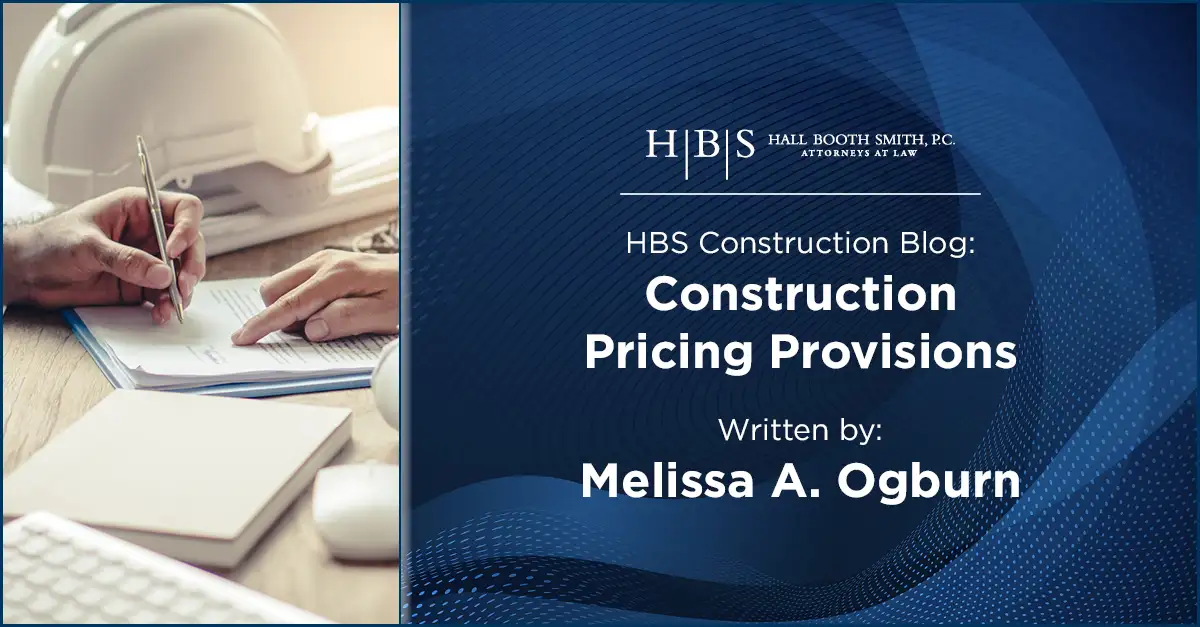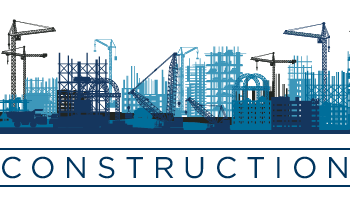
Construction Pricing Provisions
John F. Kennedy once said: “Let us never negotiate out of fear, but let us never fear to negotiate.” It was not all that long ago that subcontractors were able to offer price guarantee estimates and bids.
With material cost increases, supply chain disruptions, and labor shortages, it is becoming increasingly difficult to effectively estimate a project, especially large projects projected to take longer than a year to complete. This post discusses a few contract provisions that may be worth negotiating.
Bucket Method
Under this method, the bidding company apportions construction costs into various categories according to certain criteria, usually stable pricing and unstable pricing. For example, there may be one “bucket” or category for labor and a separate “bucket” or category for materials.
Even within the materials category, there may be separate buckets to account for the different types of materials needed for a construction project. Each “bucket” may have a different cost structure to it, such as pure pass-through cost or pass-through cost with a percentage attached to account for fluctuations.
Risk-Shifting Provision
In a risk-shifting contract, any price escalations are shifted to be the responsibility of the contractor (and perhaps ultimately the property owner) upon a threshold limit. With these types of clauses, the contractor and subcontractor typically agree on a threshold limit under which the subcontractor absorbs the increase and over which the increase is either shared or shifted to the contractor completely.
While contractors may not like to pay for the increased costs of materials, property owners should be made aware of the volatility of the markets so that a fair bargain may be had at the conception of the construction project.
Storage Cost Clauses
Another way to limit the risk and exposure of increased materials costs during the course of the construction project is to purchase all materials at the front end. For some trades, this may be more easily achieved than others, especially those with sufficient storage spaces in their warehouses or for smaller projects.
If additional storage costs can be forecasted, the parties can then negotiate how storage costs associated with storing the materials for the project will be handled. When using a storage cost clause, it is important to delineate responsibility for selecting the storage site, how routine storage fees as well as any penalties imposed by the storage facility will be handled, and how to terminate the storage agreement.
Shipment Re-Pricing Provisions
In a shipment re-pricing agreement, the parties agree to adjust the price of materials upon shipping, or sometimes ordering, of the same. Here, a subcontractor would agree to provide a quote and pricing based upon current market conditions.
However, the parties would agree to adjust the price of the materials based upon the actual cost of the materials at the time the materials were actually purchased or shipped.
Closing
It is important during contract negotiations and during the construction of the project to be transparent and forthcoming regarding any fluctuations concerning pricing or delay. Never agree to a contract you ultimately cannot afford or cannot perform, and never be afraid to ask for a revision to the contract. After all, you will never know what you might get if you never ask for it.
Disclaimer
This material is provided for informational purposes only. It is not intended to constitute legal advice nor does it create a client-lawyer relationship between Hall Booth Smith, P.C. and any recipient. Recipients should consult with counsel before taking any actions based on the information contained within this material. This material may be considered attorney advertising in some jurisdictions. Prior results do not guarantee a similar outcome.
Blog Overview
The HBS Construction Blog offers information and insight about key issues, court decisions, and legislation on all related topics including insurance coverage, liability for failures, and both damage and injury.
About the Author
Denver Partner Melissa A. Ogburn has two decades of legal experience with a concentration on construction, insurance, and liability. She represents construction companies as well as insurers and their insureds in a wide range of disputes, including construction defect, personal injury, premises liability, general liability, bad faith, mechanic’s liens, and non-payment claims.




Leave a comment
You must be logged in to post a comment.